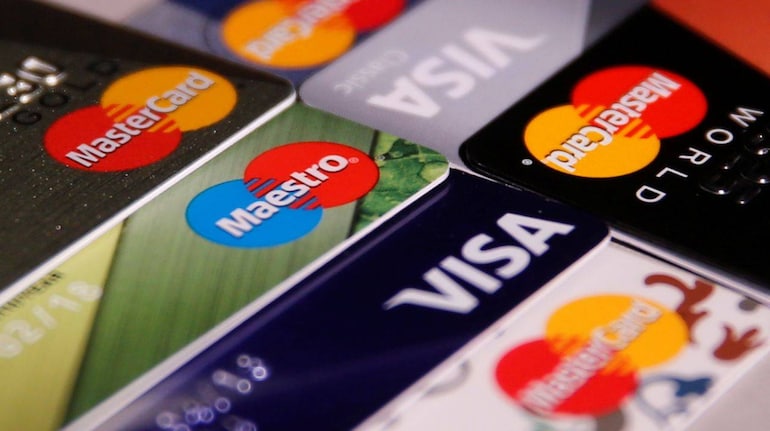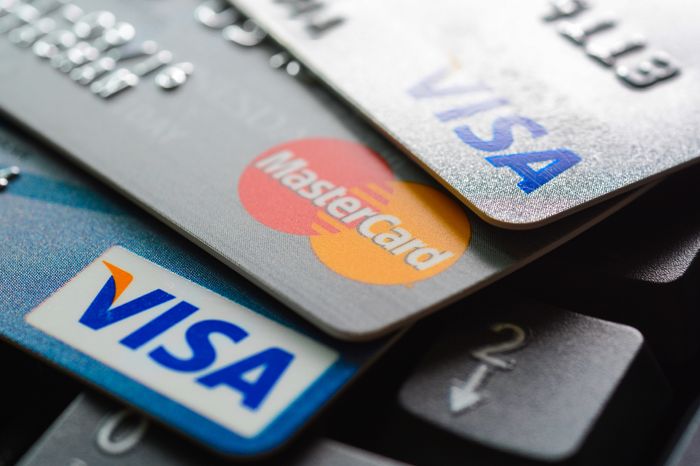Debit Card Minimums
Feb 18, 2024 By Triston Martin
Processing payments made with credit and debit cards incur costs for merchants. Some stores demand a minimum purchase amount to avoid incurring fees even for minor transactions. The fee structure for most businesses consists of a set cost for each transaction in addition to a percentage of the total value of transaction. For instance, if a merchant is charged 10 cents for each transaction in addition to a percentage of the total value of transaction, the total amount of the fee would be 13% for a transaction that was just $1 but would be only 4% for a transaction that was $10. The fees may be charged, but retailers that do so may violate the terms of their contracts with the companies that handle their payment processing if they set a minimum.
Legality
In 2013, several rules that regulate how business owners should interact with clients who pay with plastic began to take effect. Two significant shifts took occurred. It is permissible for a credit card to have a minimum purchase requirement of up to ten dollars. Merchants successfully challenged the legislation in New York state that banned surcharges and finally won their case In 2017. The challenge went to the Supreme Court of the United States. As of 2020, it will be legal to tack on fees to credit card payments. The business must pay a charge when you pay with a credit or debit card. Because of this, they are permitted to pass part or all of the cost on to you.
Debit Cards vs. Credit Cards
Since the legislation does not handle debit card transactions from the consumer's standpoint, the costs of taking your payment are typically less than those of a credit card, even if you pick a "credit" transaction at checkout. However, some stores may not know there's a distinction between credit and debit cards, and others may opt to ignore the laws regarding accepting debit card transactions because of their arrangement with card processing networks. Clearly stating that minimum purchase quantities cannot be imposed on transactions processed with a debit card, this Visa paper is meant to assist businesses in recognizing the distinctions between debit cards and credit cards.
Cash Discounts
Offering discounts for payments made with cash is one of the techniques that businesses use to avoid paying fees when consumers pay with plastic. This is one of the strategies that merchants utilize. For instance, you may pull into a gas station that displays one price for payments made with cash or debit cards and another for those made with credit cards. Most cases, the price difference is just a few cents per gallon.
This behavior is permissible as long as the discount is extended to all clients in the same manner. From a marketing point of view, it can also be more beneficial for business owners. Telling clients that they would get a discount if they pay with cash is more appealing than informing them that they will be charged a surcharge if they use a credit card.

Reporting Violations
When dealing with merchants that violate the regulations, it is in your best interest to let them know that you believe they are doing anything unlawful. This is particularly important when dealing with a small company, as the firm's owner may not know the laws.
Accepting plastic is almost mandatory, yet the associated costs might be prohibitive. There is still a cost associated with taking debit cards, even though these costs are often far smaller than the swipe fees associated with credit cards. When making purchases, keep this in mind, and if possible, pay with cash or a check instead of a credit card. It could be able to keep your favorite company viable, which would help maintain pricing at a reasonable level for everyone.
There is no need to file a complaint against merchants requiring a minimum purchase quantity for debit cards with either the attorney general of your state or the Federal Trade Commission since these businesses are not violating any laws. The rules that merchants implement are legal as long as they do not violate national or local regulations.
What Are The Costs Associated With Processing Credit Cards?

The charge structures of individual credit card processors vary, but the average range for credit card processing fees is between 2% and 3% of each transaction's total. Because certain fees are a fixed rate rather than a percentage of the overall purchase, this proportion may be much greater for transactions involving fewer items.

SBB High Yield Savings for Businesses: An In-Depth Analysis
Mar 18, 2024
Discover how SBB's High Yield Savings Account offers businesses the opportunity to maximize their interest earnings with no fees or minimum balance.

Texas Sales Tax Simplified: Rates, Calculators, and Responsibilities
Oct 16, 2024
Discover how Texas sales tax compliance works, including calculator usage and the importance of accurate collection and reporting for businesses.

Debit Card Minimums
Feb 18, 2024
Because companies are not compelled to take any particular form of payment, having a policy that exclusively accepts cash is perfectly lawful. Because of the high expense of credit card processing fees, several companies have decided to accept cash payments exclusively.

Compare in Detail: Cyclical Vs. Non-Cyclical Stocks
Dec 24, 2023
The degree to which a company's share price tracks macroeconomic shifts is described using the terms "cyclical" and "non-cyclical." Stock market cycles reflect the state of the economy. In contrast to the market, non-cyclical stocks tend to outperform the market when economic growth is slow.

Top-Rated Policies For Antique Automobiles
Feb 27, 2024
Traditional banking procedures have been given a modern twist by online banks. They provide low prices and a minimal-hassle service. Many online financial institutions provide higher returns on deposit products than conventional banks. Dollar Savings Direct is Emigrant Bank's digital banking service. The bank is headquartered in New York.

The Ultimate Guide to Curated ETFs: Building Your Model Portfolio
Mar 19, 2024
Unlock the secrets to building a successful ETF portfolio with our comprehensive guide, from basics to advanced strategies.

Complete Guide to Paying for College: Strategies and Tips
Nov 05, 2024
To establish an overall budget that lists all money inflows and outflows, you would need to begin to afford college with no headache.

Moving Average Bounce Trading System
Oct 13, 2023
The Moving Average Bounce Trading System aims to find the mean value of fluctuating stock prices. This smoothed-out value enables them to make informed decisions about how and when it is best to trade.

Explaining Co-Branded Credit Cards
Oct 22, 2023
The term "co-branded credit card" refers to a card that has been issued in conjunction with a certain retailer. Each works in tandem to produce a credit card that features the store's name and emblem and offers customers perks exclusive to that retailer.

The Determinants of Oil Prices
Oct 11, 2023
The price of oil is heavily dependent on traders who place bids in oil-related futures contracts on the market for commodities based on their expectations of demand and supply of oil

Navigating Tax Season: 10 Essential Tips for Managing Unemployment Income
Mar 21, 2024
Discover key insights on managing tax implications for unemployment income, including tips on deductions, reporting income, and minimizing tax burdens.

Maximizing Your Income: 9 Effective Strategies for Reducing Taxable Income
Mar 24, 2024
Discover effective ways to lower your taxable income, utilizing tax-deferred accounts, credits, and strategic planning, for financial growth.